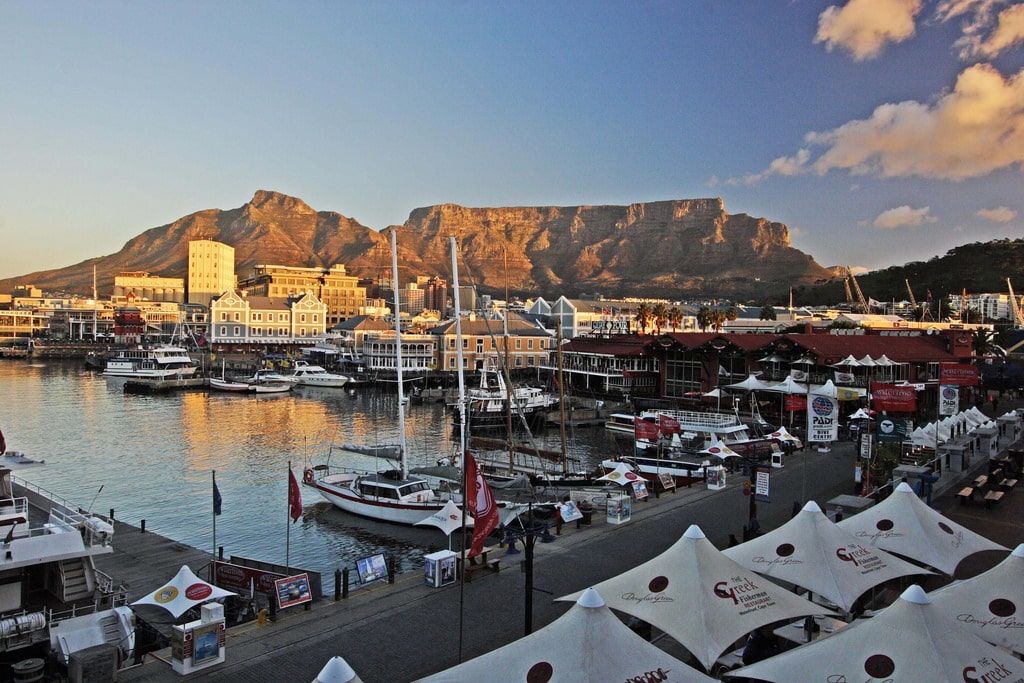Where township tours don’t go
Who produced that $30 mug you bought at Cape Town International Airport on your way home?

V&A Waterfront, Cape Town via South Africa Tourism Flickr.
“I want to see how the South African people really live.” So goes the refrain of tourists who arrive in Cape Town and find the city’s carefree vibe and geographic splendor less than real. It’s been lovely sipping wine in these breezy European vacay-scapes, but you bought an expensive plane flight to come to Africa. Where does a discerning traveler get a piece of that?
Of course the growing township tourism market offers that dollop of poor black reality so lacking in the white city.
But consider also journeying to the industrial zone on the northern cusp of the suburb of Milnerton. If you thought you were getting off the beaten path in a township, wait for this unmapped site to satiate your appetite for authenticity.
You’ll find, in a large, unmarked warehouse, hundreds of hand-painted mugs stacked upon rows of shelves. Seven black men sit at a long table stooped over these pieces with paintbrushes and pottery wheels. Another man stands at a kiln waiting to shovel in the next batch. You’ll see the mugs emerge from the fire featuring vibrantly colored giraffes, elephants, and acacia trees (baobab trees are so 2010). It’s all the workings of what an inspirational poster in the adjacent office encourages: “TEAMWORK”.
You’ll hear that the team produces 80-100 pieces per day. They are shipped to the V&A Waterfront, where less adventurous tourists can take home a little piece of handcrafted Africa. Don’t tell those buyers, but the mugs are also shipped to Europe, so that the friends of the European couple who runs this joint can also add some cosmopolitan flair to their kitchens (they’ll get around to visiting Africa eventually). Then you’ll witness firsthand a worker affixing to each piece a tag depicting four headshots. A penned “X” marks the smiling individual who painted the item.
You’ll learn that these men come to the warehouse from the Khayelitsha and Nyanga townships six days a week, working up to twelve hours a day. The overseas owners pay them R21 (~$1.60/€1.40) per hour. Their commute alone will eat up much of those earnings. But, as one will say to you with a shrug, “It’s better than nothing.” He has a grandmother and a 21-year-old sister in college to support. There’s no time to quibble over unfair labor practices. Especially because the seasonal flux of tourism means that this job might not even exist in a few months.
You’ll see, in short, how the South African people really live. Since the white people in Camps Bay are not really South African people and not really living.
Unfortunately, you might find it difficult to locate this stunningly realistic site. The owners have discouraged visitors to the warehouse. Workers’ contracts stipulate that they not share photographs of the place or its contents. Could it be that revealing the means of production might dissuade consumers from buying? That some spaces must remain cloaked in order to maintain capitalist exploitation? That some places might be just too real for tourists? If that’s the case, then you can still pick up one of these mugs at the Cape Town International Airport on your way home for just R320.



















